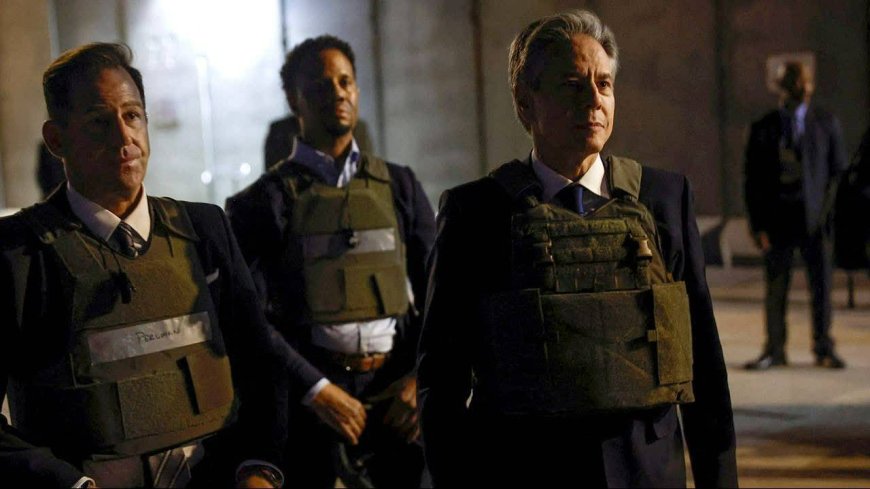US-Iraq Relations in Turmoil: Blinken's Visit amidst Ongoing Israeli Aggression against Gaza
The recent visit of US Secretary of State, Antony Blinken, to Baghdad has unfolded against the backdrop of Washington's tacit support for the Zionist regime's ongoing war crimes in the Gaza Strip. As anti-American and anti-Zionist sentiments gain momentum throughout Iraq, doubts have emerged regarding the objectives of Blinken's diplomatic mission.

Initially, the Iraqi government had stated that the purpose of this visit was to assess regional developments following the Gaza conflict. In diplomatic terms, this implied seeking support or ensuring non-interference from the Iraqi government in the perilous situation the Zionist regime finds itself embroiled in. Such scenarios become evident when examining the regional voyages of the Iraqi Prime Minister.
During the few hours spent in Iraq, Secretary Blinken held a meeting with Prime Minister Al-Sudani. In a brief statement, Blinken emphasized the US's aversion to confrontation with Iran and urged Iraqi resistance groups to refrain from targeting American military personnel and bases in the country. However, it is important to note that these diplomatic efforts run parallel to the on-ground movements witnessed since the commencement of Operation Al-Aqsa Storm and the all-encompassing assault by the Zionist forces on the oppressed civilians of Gaza.
In the past month, Iraqi resistance has retaliated against American bases and targets in Iraq and Syria, using rockets, missiles, and drones. Most recently, the Islamic Resistance Movement of Iraq declared that it had employed drones to target the American base in northeastern Syria. These developments have prompted observers to highlight the peculiar situation surrounding Blinken's visit to Baghdad, including the heightened level of security measures, and even the Secretary's donning of a bulletproof vest, indicative of concerns about potential targeting on Iraqi soil.
Such circumstances, coupled with the brevity of the visit, underscore the lack of planning on the part of Blinken and his entourage in their West Asia journey. Consequently, the hidden objective behind this trip appears to be the endeavor to secure non-interference on the part of the Iraqi government and resistance vis-à-vis the Israeli regime.
It is worth mentioning that following Blinken's visit to Baghdad, the Prime Minister, Mohammed Shia' Al Sudani, embarked on a regional tour, commencing with Tehran, to exchange views regarding the developments in Gaza.
After visiting Tehran, the Iraqi Prime Minister will visit the capitals of the littoral Arab countries of the Persian Gulf. Political experts have proposed a possible scenario that Al Sudani's visit to Iran, a day after Blinken's visit to Baghdad, may strengthen the likelihood of the Iraqi Prime Minister carrying a message from the Americans to Iranian officials.
In conclusion, the future trajectory of US-Iraq ties remains uncertain, particularly in light of the attacks on American bases in Iraq and the ongoing all-out aggression by the Zionist forces against the Gazans, coupled with the White House's support for Israeli heinous war crimes.
It is noteworthy that even US officials, after a period of unwavering support for the Zionist regime and the alarming tally of 10,000 Palestinian casualties resulting from the Israeli indiscriminate airstrikes, have begun to voice criticism. Implicitly denouncing their predatory partner, they now call for a reduction in and cessation of violence. Blinken himself has urged an end to the violent actions of Israel against the Palestinians. This global observation highlights the intensifying international efforts alongside the resistance fronts to halt the Israeli war machine.













































